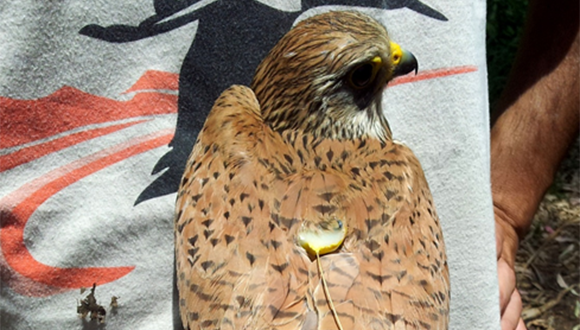Israel Science Foundation (ISF) – Bikura Program
High-Throughput Wildlife Tracking
High-Throughput Wildlife Tracking
Ran Nathan, Ecology, Evolution & Behavior Dept., Hebrew University,
Sivan Toledo, School of Computer Science, Tel Aviv University
Anthony J. Weiss, School of Electrical Engineering, Tel Aviv University
We develop a wildlife tracking technology based on the reverse GPS principle. The technology will overcome substantial barriers in animal movement ecology, radically transforming this field from a data-poor to a data-rich discipline. The flood of data will stimulate a revolutionary transformation by creating new opportunities for this important field. Our goal is to fully develop a reverse GPS system capable of gathering high-resolution high-throughput datasets on animal movement that are necessary to address major questions in movement ecology that are still out of reach: how do flock members maintain collective motion in the wild?
How does an animal respond to multiple real-time risks or conflicts induced by different predators and
competitors? What explains spatial and temporal hotspots of interactions within and among species?
The subject of this proposal is of broad importance for life sciences since movement of organisms is one of the most fundamental features of life on Earth. Understanding ecological, behavioral and evolutionary processes that shape life necessitates delving into the questions why, how, when and where animals and other organisms move. The study of animal movement largely relies on our ability to track the journeys of free-ranging animals in the wild, yet practical difficulties have long made animal movement ecology a data-poor discipline. Global satellite navigation systems (especially GPS) have dramatically increased the availability and accuracy of wildlife movement data over the last decade, but inherent physical and technological barriers still limit the amount of data available through GPS and all other tracking techniques to relatively low volumes, because vast majority of animal species are too small to be tracked by GPS devices.
In preliminary work we have found that a tracking technique called “Reverse GPS” can address this gap. It should be able to accurately track large number of individual animals at high fix rates using tracking devices weighing as little as 0.3g, allowing tracking 95% of bird species, whereas only 15% are trackable via GPS. It is most suitable for tracking on a regional scale (a few to tens of kilometers) where most animals spend substantial parts of their lives. Unfortunately, it is not available commercially in a form that can be adapted to wildlife tracking.
Reverse GPS is a complex technology. Developing a reverse GPS system to a point that it is usable by life scientists and can generate unique experimental results involves a huge risk. We thus partitioned the project into a feasibility study in which we built a prototype to demonstrate that the project is feasible (accomplished), and an implementation phase that will transform the prototype into a system that can be deployed by wildlife biologists and that can yield massive datasets with GPS-like accuracy. We also propose to systematically characterize the accuracy of the system, to develop tools to analyze the vast amounts of data, to further develop the system to broaden and strengthen its value for scientific research, and to validate and demonstrate its utility in at least two large-scale groundbreaking field studies. The system will support multiple simultaneous studies, to maximize its utility and to minimize the per-study cost. We anticipate high rewards based on our synopsis of this field and our most promising preliminary results, which were intended to mitigate the risk associated with this undertaking but still insufficient for generating novel results; we therefore believe that this big-science high-risk high-reward project merits support.


